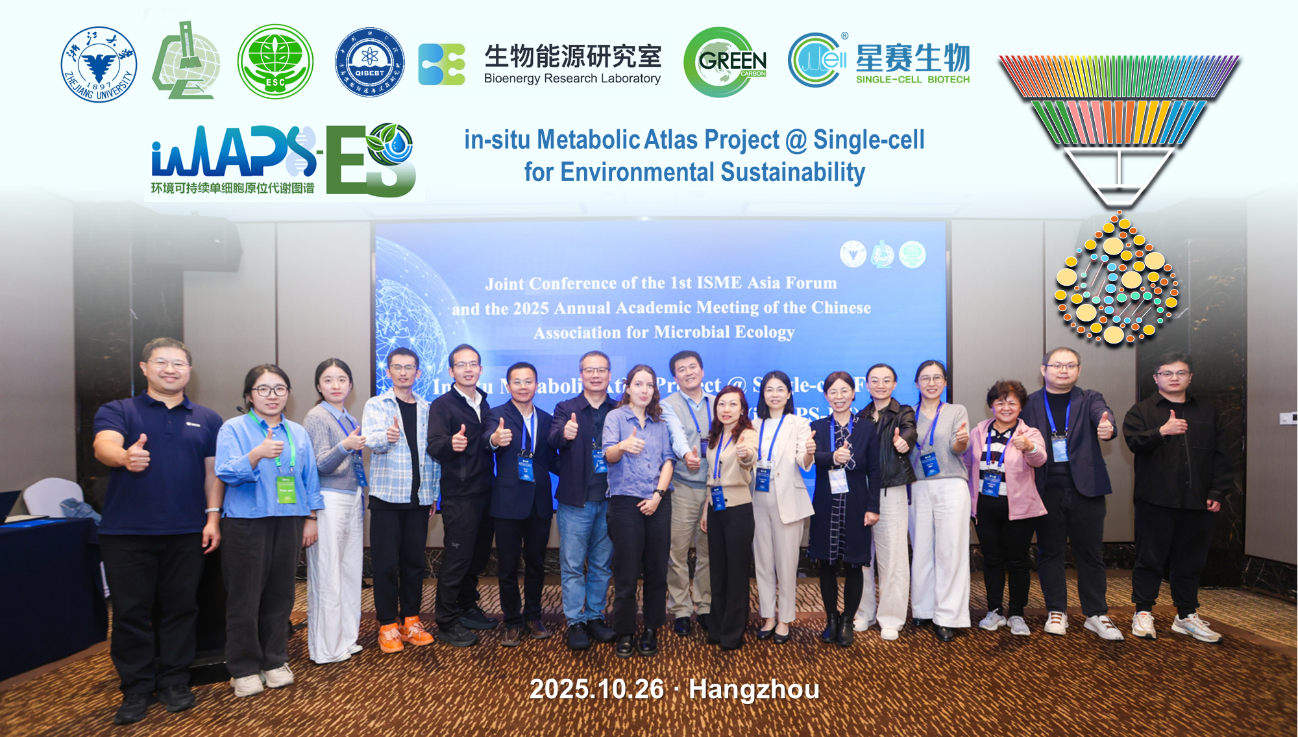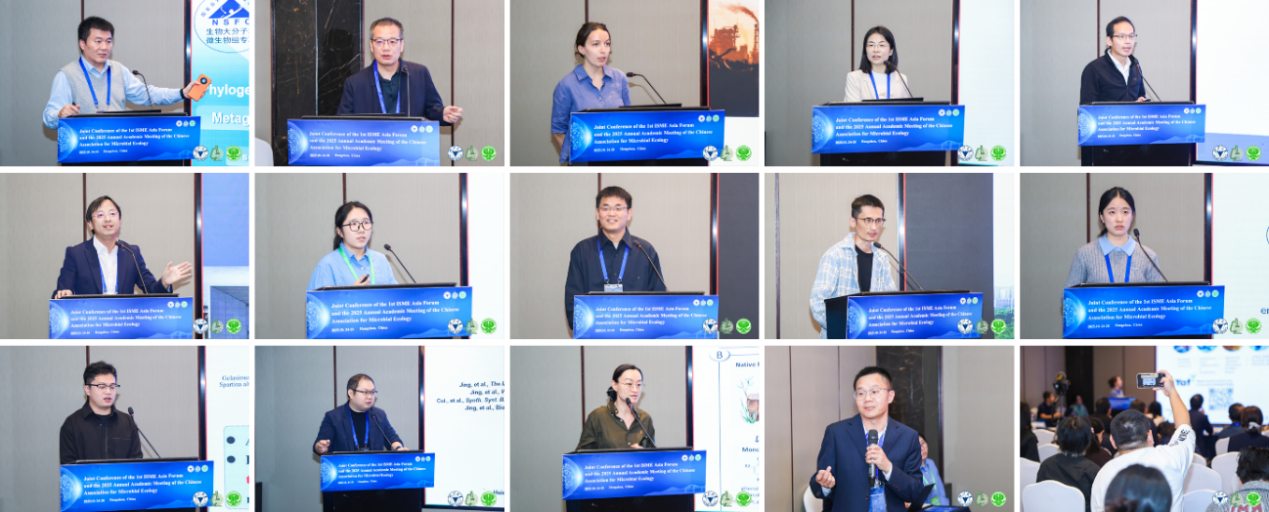iMAPS-ES Symposium Highlights Advances in Environmental Sustainability Solutions through Meta-Ramanomics Technology
The in-situ Metabolic Atlas Project @ Single-cell for Environmental Sustainability (iMAPS-ES) symposium, held in Hangzhou during the Joint Conference of the 1st ISME Asia Forum and the 2025 Annual Academic Meeting of the Chinese Association for Microbial Ecology, attracted more than 100 experts from microbiology, synthetic biology, and environmental science.
Co-chaired by Prof. XU Jian from the Single-Cell Center at Qingdao Institute of Bioenergy and Bioprocess Technology (QIBEBT), Chinese Academy of Sciences, Prof. MA Bin from Zhejiang University, and Prof. MA Bo (Single-Cell Center), the session spotlighted how single-cell, metabolism-targeted approaches can accelerate environmental remediation.

Talks centered on meta-ramanomics ─ using Raman spectroscopy to profile in-situ metabolism at single-cell resolution ─ and on complementary single-cell sorting and genomics workflows. Together, these methods connect what microbes do in real environments with who they are and how to cultivate them, enabling direct, function-driven isolation of live strains for pollutant degradation and ecosystem restoration, and providing a technical foundation for addressing global warming and advancing environmental sustainability.
Presenters shared applications ranging from plastic and pharmaceutical biodegradation to community-level metabolic profiling that guides the discovery and cultivation of rare, high-value microbes.

Participants reached consensus on next steps to scale impact: building shared data and quality-control standards for ramanome datasets, standardizing experimental procedures to improve reproducibility, and launching joint demonstrations in representative environmental scenarios. These actions aim to accelerate the translation of lab advances into field-ready solutions.
As the environmental-sustainability branch of the international iMAPS initiative, iMAPS-ES was launched in October 2024 in Qingdao. It now leads coordinated efforts focused on soil and water ecosystems that address global challenges and national strategic needs.
iMAPS has established about 60 research nodes worldwide, forming a distributed infrastructure that integrates “metabolic sensors, probiotic miners, and ecological restorers.” This network is designed to bridge instruments, data, resources, processes, and applications, linking discovery with deployment for green biomanufacturing and ecological health.
The iMAPS-ES symposium in Hangzhou featured contributions from institutions including QIBEBT, Imperial College London, the University of Hong Kong, among others, illustrating the platform’s reach from method innovation to real-world use cases. By aligning interoperable tools, referenceable datasets, and culture-compatible pipelines, the community is laying the groundwork for routine monitoring and mining microbiomes anytime, anywhere.
Looking ahead, iMAPS-ES will expand its collaborations and demonstration sites, strengthening standards and data sharing while fast-tracking functional strains into remediation and sustainability workflows. With high-throughput, single-cell technologies as its engine, the initiative is poised to help deliver practical, scalable solutions for a cleaner, more sustainable planet.